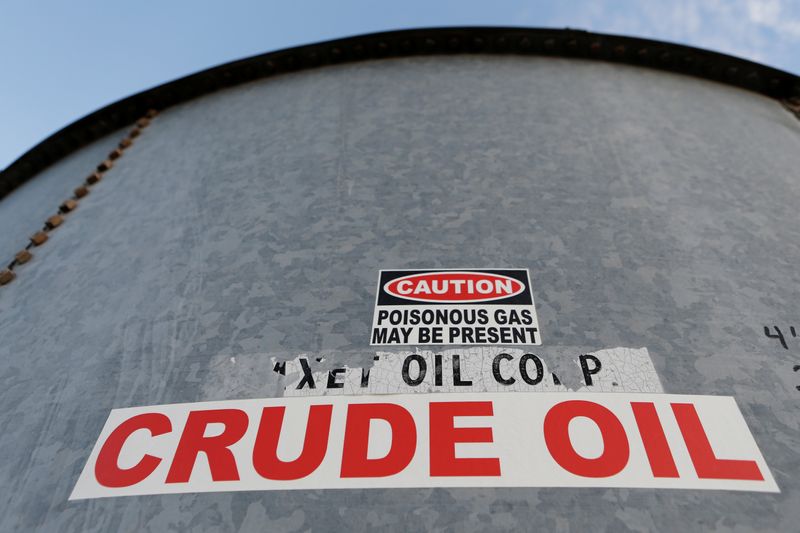By Georgina McCartney and Arathy Somasekhar
HOUSTON (Reuters) -Oil prices rose for a second week in a row and settled at their highest in nearly two months on Friday as positive U.S. economic growth and signs of Chinese stimulus boosted demand expectations, while Middle East supply concerns added support.
futures rose $1.12, or 1.4%, to settle at $83.55 a barrel, their highest close since Nov 30. U.S. West Texas Intermediate crude (WTI) () climbed 65 cents or 0.8% to $78.01, also the highest close since November.
Both benchmarks made weekly gains of more than 6%, marking their biggest weekly increase since the week ending Oct. 13 after the start of the Israel-Hamas conflict in Gaza.
“Economic stimulus from China, stronger-than-expected 4Q GDP growth in the U.S., cooling U.S. inflation data, ongoing geopolitical risks, and the larger-than-expected 9.2 million-barrel drop in U.S. commercial crude stocks for last week have all combined to wedge prices higher,” said Tim Evans, an independent oil market analyst.
The Houthi military spokesperson said naval forces carried out an operation targeting an oil tanker in the Gulf of Aden, causing a fire to break out, adding to worries of supply disruptions.
Oil was also boosted earlier this week by a larger-than-expected drawdown in stockpiles. The depletion in inventories, especially around the WTI delivery point at Cushing in Oklahoma and across the Midwest, could create a squeeze on nearby futures prices.
Supply concerns are evident in the structure of Brent futures. The premium of the first-month contract to the sixth on both Brent and WTI rose to the highest since November, indicating a perception of tighter prompt supply.
A potential fuel supply disruption after a Ukrainian drone attack on an export-oriented oil refinery in southern Russia also supported prices.
On the demand side, the U.S., the world’s biggest oil consumer, registered faster-than-expected economic growth in the fourth quarter, data showed on Thursday. Sentiment was also buoyed this week by China’s latest measures to boost growth.
Traders, however, bet the U.S. central bank is more likely to start its round of rate cuts in May, rather than March, weighing on crude futures.
Also curbing gains, Baker Hughes said U.S. energy firms this week added two oil rigs, pushing the figure up to 499.
Money managers raised their net long U.S. crude futures and options positions in the week to Jan. 23, the U.S. Commodity Futures Trading Commission (CFTC) said.
Read the full article here




